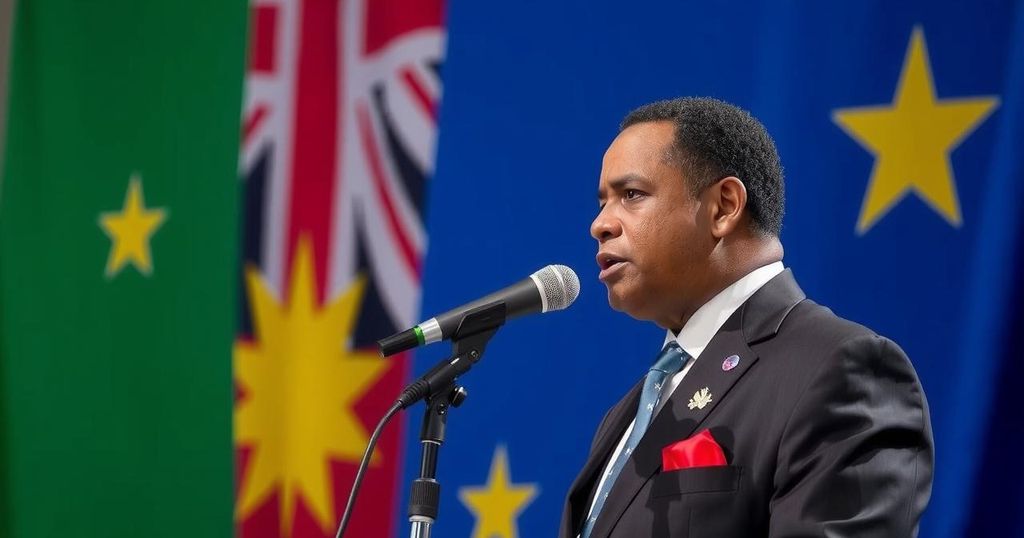Mauritius Prime Minister Pravind Jugnauth Concedes Election Defeat

In a significant political development, Mauritius’ Prime Minister Pravind Jugnauth conceded defeat in recent legislative elections, indicating a likely victory for opposition leader Navin Ramgoolam. Despite previous governmental successes, such as the Chagos Islands agreement, Jugnauth’s acknowledgment of public choice signals a pivotal moment for Mauritian politics amidst increasing concerns about governance and economic disparities.
Pravind Jugnauth, the Prime Minister of Mauritius, officially conceded defeat in the recent general elections, indicating that the opposition is poised for victory. Although the final results are yet to be officially confirmed, it appears that opposition leader Navin Ramgoolam will reclaim the prime ministership for his third term, leading the Alliance of Change coalition. Jugnauth acknowledged the people’s choice, expressing his wish for success to the incoming government and its citizens. The elections were overshadowed by a wire-tapping scandal and prevalent concerns regarding the economic welfare of Mauritian citizens despite the country’s steady economic growth. Recent voter turnout was approximately 80%, reflecting significant public engagement. Ramgoolam, an influential political figure in Mauritius and son of the nation’s first Prime Minister, expressed optimism prior to the elections, expressing that the populace was yearning for what he termed “liberation”. Historically, both Jugnauth and Ramgoolam hail from powerful political dynasties that have dominated the Mauritian political landscape since independence in 1968. Despite unprecedented achievements, such as a recent sovereignty agreement with Britain regarding the Chagos Islands, Jugnauth’s leadership faced challenges amid allegations of governance issues and corruption. This political alteration suggests a shift in public sentiment, as voters search for more accountable governance in Mauritius, a country known for its robust democracy and economic prosperity.
Mauritius is recognized as one of the most stable democracies in Africa, having maintained a resilient economy leveraging its tourism, financial services, and manufacturing sectors. Economic indicators, such as a GDP per capita exceeding $10,000, reflect its prosperous state. However, as political dynasties like those of Jugnauth and Ramgoolam vie for power, concerns about corruption and public governance have escalated, prompting calls for new leadership. The Chagos Islands sovereignty agreement highlighted the government’s recent diplomatic successes, although it also underscored existing tensions surrounding governance stability.
The electoral concession made by Pravind Jugnauth marks a pivotal moment in Mauritian politics, suggesting a potential shift towards the opposition under Navin Ramgoolam. As the nation navigates recent governance challenges and an economic backdrop marked by growth and inequality, the incoming administration will need to effectively address the populace’s desires for improved living conditions and transparency. The results of this election could herald significant changes in both policy and governance practices in Mauritius.
Original Source: www.seychellesnewsagency.com







